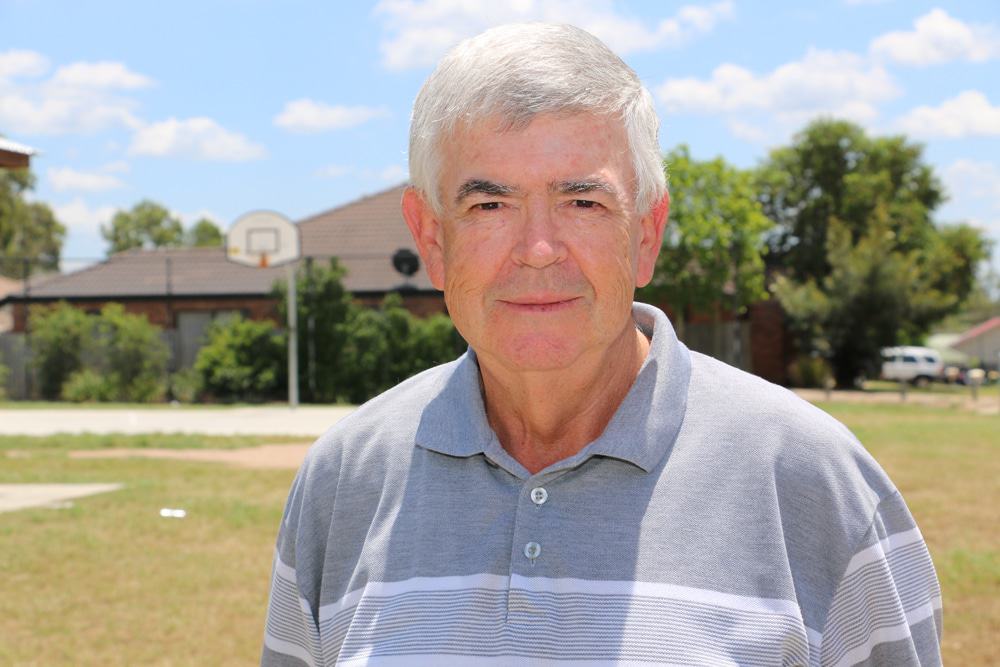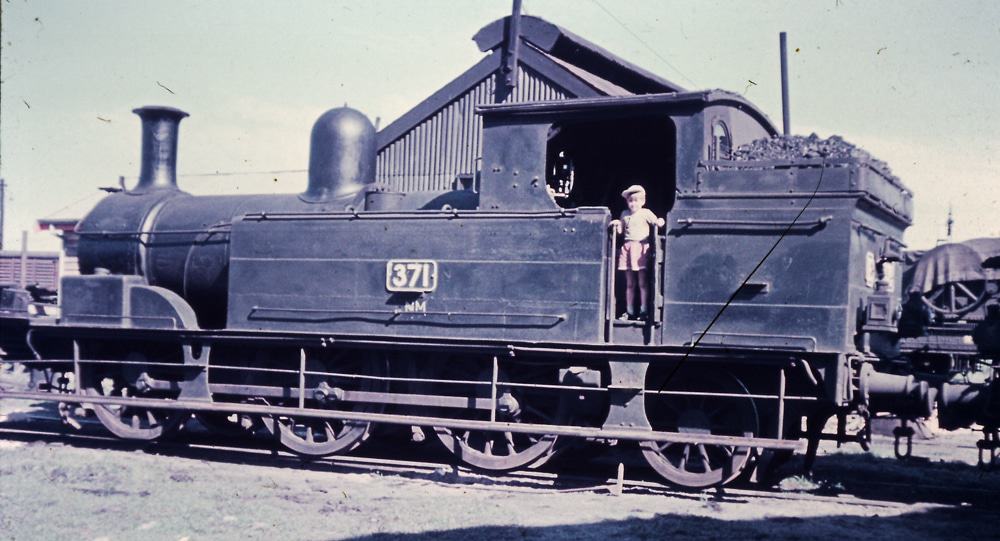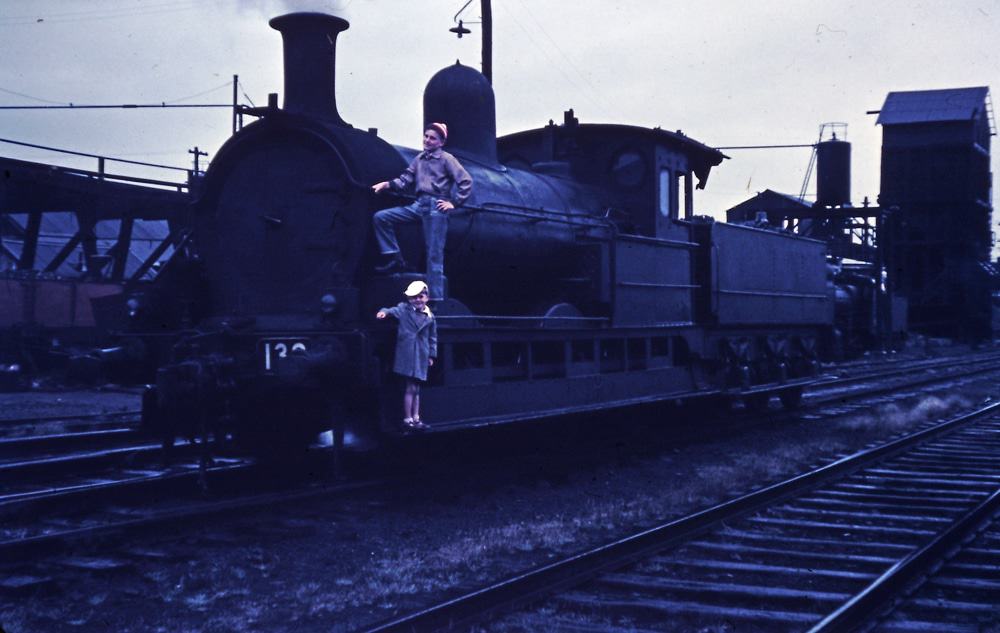
As lead spokesperson for Rail Back on Track, Goodna’s Robert Dow is perhaps Queensland’s most well-known public transport advocate. This is his story.
When public transport advocate Robert Dow was a young boy, his grandfather would often take him to visit the rail yards in Melbourne.
It was a different time – the 50s – and he was allowed to walk the yards and even ride in steam engines. The visits instilled a lifelong interest in the railways.
So, decades later when Mr Dow started advocating for improved rail services, it might have seemed a logical fit.
However, the truth of the matter is Mr Dow’s journey to becoming arguably Queensland’s most recognisable commuter advocate had nothing to do with his love of rail and everything to do with university students of Brisbane.
It begins with the army
Mr Dow joined the army in 1969. Having learned to touch type by age 16 in his previous job as a postal clerk, he was convinced he would end up in the Royal Australian Corp of Signals.
“The army had a different idea. I did my recruiting and the next thing I know I’m allocated to the medical corp,” he said.
It was the beginning of a long and fruitful career with the army, which included service in Vietnam and Mr Dow’s rise from the rank of Private to Captain.
“I was a medical assistant, a medic, and then I trained as a pathology technician and ultimately went to university and became a medical scientist,” he said.
Mr Dow, who is a fellow of the Australian Institute of Medical Sciences, left the army in the early 90s and worked at the Mater Hospital for several years before taking up a position with Queensland University of Technology (QUT).
It was here his interest in public transport advocacy would develop.

A three-year-old Robert Dow on a steam engine in 1954.
Student concerns come to the fore
While working as a lecturer and course coordinator at QUT, Mr Dow began to notice students regularly struggling to get to classes on time.
“Probably about 2003 or 2004 I became increasingly aware of problems students were having getting to university on time,” he said.
“They would say ‘the bus didn’t turn up’ or ‘the train was late’ or whatever and I thought maybe we need to focus on trying to get some improvements in public transport.
“At the time, Brisbane was very bus-centric, all the focus was on busways, and rail was a bit neglected. I thought ‘something needs to be done about this’.”
He aired his thoughts on an internal QUT forum and quickly found support among colleagues, with one suggesting the name Rail Back on Track for an advocacy group.
The suggestion was enough to cement the idea in Mr Dow’s mind.
“We started to churn out these releases in 2004 or 2005. I think I formally started the group in 2006 and put out a couple of media releases about the Air Train and the next thing I know I’m on the ABC with Kelly Higgins-Devine talking about the Air Train,” he said.
“It’s just sort of gone from there.”
Community support grows quickly
Where the group has gone has been significant, with it now having 900 members and regularly recording more than 50,000 hits on its website per day.
“Although we were initially focused on rail, we rapidly went into broader public transport issues,” he said.
Mr Dow is frequently called upon to meet with government ministers, opposition spokespeople and bureaucrats. He is also regularly in the media.
“We’re self-funded and apolitical. We report policy that’s correct. If the policy is wrong, it doesn’t matter what party it is, we’ll attack it. If the policy is right, it doesn’t matter which party it is, we’ll back it,” he said.

At North Melbourne in 1957.
Mr Dow said occasionally the group was criticised for not being transport experts, but that was exactly how he wanted it.
“We’re not transport experts, we’re commuters. We project things from a commuter perspective,” he said.
“We might criticise something but we’ll always have a constructive plan to address it.
“It may not necessarily be 100 per cent right from a transport theory perspective but that doesn’t matter; that isn’t what the punters think about.
“The punter sees that his train’s not there, that his bus has missed the train or his train has missed the bus and wants it fixed.
“We make a lot of noise but that noise gets the government stirred up and they say ‘we’ve got to do something here’ and they get the policy people and transport planners to come up with the solution.”
Rail Back on Track has had many wins since its inception, from small ones such as having the air-conditioning temperature adjusted in new trains for passenger comfort to big ones such as extra services added.
Mr Dow, who is now retired and lives at Goodna, said Rail Back on Track remained as important as ever.
“I think that it’s important that someone is out there advocating for the punter because clearly there is a need for it because look at the failures (with rail) that are happening around us,” he said.
“I see the public transport advocacy stuff as part hobby, part service. I quite like helping resolve issues for people, particularly where everything else has failed.”


4.5
5
1.5